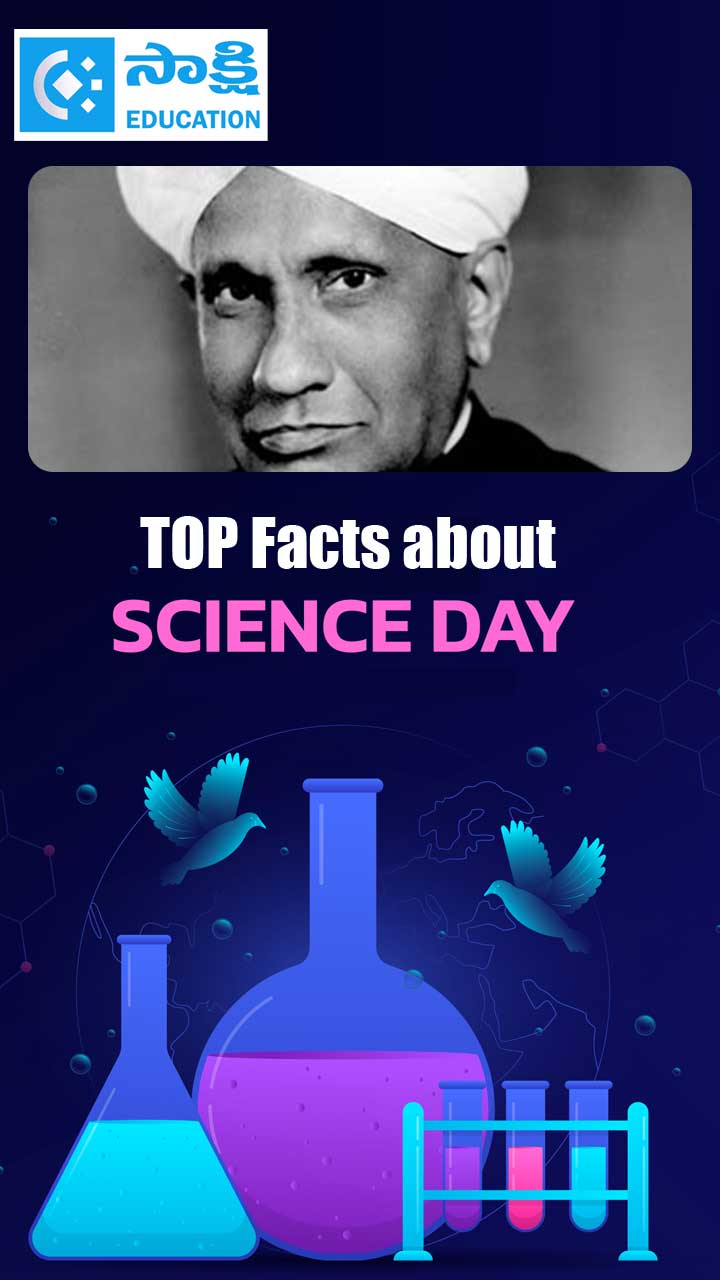Interview with Dr.Viji Murali, New Chief Information Officer, University of California
Sakshi Education

Dr. Vijji Murali, Chief Information Officer, University of California, graduated in biology and chemistry in the year 1975 from Women’s college, Osmania University and Masters in Organic Chemistry from Osmania College of science in the year 1977. She worked on a doctoral research program at Regional Research Laboratory till 1981. After tying knot with Dr.Murali, she moved to US and there she did two years graduate course at Iowa State University and then she completed her master’s programme at Arizona University.
She started her career as a Systems administrator at Arizona University for a period of 11 years and she worked as a programmer and principal project leader at center for computing and information technology. Later from the year 1999 to 2007, she served as a vice president for information Technology and CIO at western Michigan University. With the vast experience followed by wisdom, she made herself eligible for CIO post at University of California. She firmly believed that “technology as a catalyst for innovation and technology can revolutionize the growth society".
She is with us to share her vast experience and how she transformed into a great leader…………
Madam, what was your feeling after knowing that you have been named as C.I.O. of University of California and how do you share this new achievement with our readers?
I am excited and honored to be chosen to lead the technology enterprise at the University of California, Davis, one of the elite and prestigious universities in the United States
What is your personal experience in moving from Chemistry to Computer Science and Engineering? And what factors led you to transform?
As a child I was always intrigued by three dimensional objects and pattern recognition puzzles that my father would bring home and so I chose to major in Organic Chemistry to teach young women science in colleges in India. Computer Science was only available to a few and when I moved to the United States, I finally had the opportunity to pursue Computer Science with encouragement from my husband.
Madam, decades back you did PhD in Osmania University. How much support did you get from your peers and family members, where there is huge gender inequality in our country?
I come from a very progressive family, my father especially believed that a women’s education was very important and had the potential to raise the profile of the entire family, and encouraged me from a very young child to pursue science. My parents sacrificed a lot for my siblings and me, in order to send us to the best schools possible.
In academic perspective, how much importance has been given for IT in present education system and how it will help students to gain extra knowledge in their subjects?
Firstly, let me state that there is no substitute for hard work, passion for your subject matter and perseverance when it comes to education. Technology enhances and accelerates learning. I remember using logarithm tables, slide rulers and other learning tools – they have now been replaced by technology, thus freeing up our time and brain power for more meaningful and creative endeavors.
Recently you opined that technology acts as catalyst for innovation. To materialize this opinion, what kind of exercise has to be done by students?
If you think about where we were before the “web” was created and where we are today, there has been a technology revolution in every sector of the economy. We have businesses and industries that are moving at warp speed due to technology. Such inventions would not have been possible without the creation of the web, the internet, cellular phones and other technologies. In turn these technologies then “catalyze” discoveries in medicine, sciences and the arts.
In R&D point of view how can we use IT for better innovations?
IT has become ubiquitous and research at all levels is employing it on a regular basis and for formulating the next generation of technologies. Robotics, self-driving cars, and prosthetics that are as good as biological organs are some examples where IT is making ground breaking contributions.
In our country context, how can we utilize IT for effective teaching and learning system?
The biggest challenge in India is rural education where majority of the population still lives. Wireless communication along with inexpensive handheld devices can revolutionize distance learning for children in these communities, especially young girls and women who still suffer oppressive social environment. The web has a plethora of educational resources such as the Khan Academy that can be effectively employed for education in rural communities.
Many academicians opine that use of Information and Communication Technology is best way for development of education. But still we are lacking infrastructure facilities. Keeping these things in view, what are your suggestions to bring ICT based education even to remote and rural areas, which are having major demographic share in our country?
It is critical that investments be made to improve information technology infrastructure in the rural communities. Current technologies of wireless communication, WAN’s (wide area networks), and inexpensive hardware such as tablets and smart phones are tools that enable in improving education and innovation in rural areas. A revival of cottage industries in the modern setting will propel India’s economy.
What are your observations about the difference between Indian and American education system? What changes do we need to compete with global trends?
Indian education fundamentally is still very sound as it emphasizes learning principles, in any discipline with rigor. The gap exists in applying principles to practical problems. Information technology can bridge this through virtual labs and simulations.
Though majority of the students in India are taking IT as their core branch, they are lacking employability skills. What are your solutions for this problem? And how can an IT specialized student mould himself with job ready skills by the time, taking certificate in hand?
IT education alone does not teach the skills needed to be successful in the work place. Integrating internships in the public and private sector will provide opportunities to develop problem solving, communication, and teamwork skills necessary to have a successful career.
Your suggestions to aspiring students and job seekers in IT segment?
Nothing can replace hard work, perseverance, and passion for learning and excelling in a chosen field. It is important to stay abreast of developments and advancements in the IT field, which are very rapid. Acquiring practical experience through volunteer and paid internships is a critical component to improving knowledge and employability. These can be effectively achieved through public-private partnerships.
She started her career as a Systems administrator at Arizona University for a period of 11 years and she worked as a programmer and principal project leader at center for computing and information technology. Later from the year 1999 to 2007, she served as a vice president for information Technology and CIO at western Michigan University. With the vast experience followed by wisdom, she made herself eligible for CIO post at University of California. She firmly believed that “technology as a catalyst for innovation and technology can revolutionize the growth society".
She is with us to share her vast experience and how she transformed into a great leader…………
Madam, what was your feeling after knowing that you have been named as C.I.O. of University of California and how do you share this new achievement with our readers?
I am excited and honored to be chosen to lead the technology enterprise at the University of California, Davis, one of the elite and prestigious universities in the United States
What is your personal experience in moving from Chemistry to Computer Science and Engineering? And what factors led you to transform?
As a child I was always intrigued by three dimensional objects and pattern recognition puzzles that my father would bring home and so I chose to major in Organic Chemistry to teach young women science in colleges in India. Computer Science was only available to a few and when I moved to the United States, I finally had the opportunity to pursue Computer Science with encouragement from my husband.
Madam, decades back you did PhD in Osmania University. How much support did you get from your peers and family members, where there is huge gender inequality in our country?
I come from a very progressive family, my father especially believed that a women’s education was very important and had the potential to raise the profile of the entire family, and encouraged me from a very young child to pursue science. My parents sacrificed a lot for my siblings and me, in order to send us to the best schools possible.
In academic perspective, how much importance has been given for IT in present education system and how it will help students to gain extra knowledge in their subjects?
Firstly, let me state that there is no substitute for hard work, passion for your subject matter and perseverance when it comes to education. Technology enhances and accelerates learning. I remember using logarithm tables, slide rulers and other learning tools – they have now been replaced by technology, thus freeing up our time and brain power for more meaningful and creative endeavors.
Recently you opined that technology acts as catalyst for innovation. To materialize this opinion, what kind of exercise has to be done by students?
If you think about where we were before the “web” was created and where we are today, there has been a technology revolution in every sector of the economy. We have businesses and industries that are moving at warp speed due to technology. Such inventions would not have been possible without the creation of the web, the internet, cellular phones and other technologies. In turn these technologies then “catalyze” discoveries in medicine, sciences and the arts.
In R&D point of view how can we use IT for better innovations?
IT has become ubiquitous and research at all levels is employing it on a regular basis and for formulating the next generation of technologies. Robotics, self-driving cars, and prosthetics that are as good as biological organs are some examples where IT is making ground breaking contributions.
In our country context, how can we utilize IT for effective teaching and learning system?
The biggest challenge in India is rural education where majority of the population still lives. Wireless communication along with inexpensive handheld devices can revolutionize distance learning for children in these communities, especially young girls and women who still suffer oppressive social environment. The web has a plethora of educational resources such as the Khan Academy that can be effectively employed for education in rural communities.
Many academicians opine that use of Information and Communication Technology is best way for development of education. But still we are lacking infrastructure facilities. Keeping these things in view, what are your suggestions to bring ICT based education even to remote and rural areas, which are having major demographic share in our country?
It is critical that investments be made to improve information technology infrastructure in the rural communities. Current technologies of wireless communication, WAN’s (wide area networks), and inexpensive hardware such as tablets and smart phones are tools that enable in improving education and innovation in rural areas. A revival of cottage industries in the modern setting will propel India’s economy.
What are your observations about the difference between Indian and American education system? What changes do we need to compete with global trends?
Indian education fundamentally is still very sound as it emphasizes learning principles, in any discipline with rigor. The gap exists in applying principles to practical problems. Information technology can bridge this through virtual labs and simulations.
Though majority of the students in India are taking IT as their core branch, they are lacking employability skills. What are your solutions for this problem? And how can an IT specialized student mould himself with job ready skills by the time, taking certificate in hand?
IT education alone does not teach the skills needed to be successful in the work place. Integrating internships in the public and private sector will provide opportunities to develop problem solving, communication, and teamwork skills necessary to have a successful career.
Your suggestions to aspiring students and job seekers in IT segment?
Nothing can replace hard work, perseverance, and passion for learning and excelling in a chosen field. It is important to stay abreast of developments and advancements in the IT field, which are very rapid. Acquiring practical experience through volunteer and paid internships is a critical component to improving knowledge and employability. These can be effectively achieved through public-private partnerships.
Published date : 07 Nov 2014 04:20PM


















